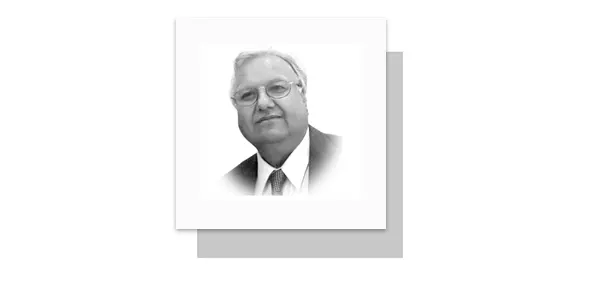
WHEN esteemed Professor Fatah Muhammad Malik talks about socialism, it seems irrelevant. While it’s true that the issue seemed almost old after the Cold War, Dr. Shahzad Iqbal Sham has revitalized it. And the revival is such that if political leaders take heed, it could lead to new ideological alliances. Thus, in our context, the era of ideological politics is almost over. One reason is the end of the Cold War, but the other is purely local and quite intriguing.
When Zulfikar Ali Bhutto was deprived of power, the Cold War was at its peak. But after a long struggle, Benazir Bhutto came to power, that era had passed. Therefore, her politics is seen differently from the traditional politics of the Pakistan People’s Party. As the world changed, so did the direction of Pakistani politics. While the division between the right and left wings persisted, the ideological division based on ideals shifted. It’s often said that after fighting more or less fruitlessly for about eleven years, the Pakistan Muslim League-Nawaz and the Pakistan People’s Party learned a lesson and signed the Charter of Democracy, aimed at ensuring mutual peace to prevent a third party from gaining ground. This analysis is partly correct but not entirely. A complete analysis would reveal that after the division between the right and left faded away, it was necessary to base politics on new ideologies.
The new direction was exactly that—constitutional and civilian supremacy. This new alignment in our politics was somewhat local and in line with Pakistan’s national objectives. Slogans against corruption in society are old; the first platform to address it was attempted by three personalities. Among them were Qazi Hussain Ahmad, Gen.Hamid Gul and Mr. Zia Shahid. The reality is that behind the establishment of this platform, Gen. Hamid Gul’s mind was at work, who had already turned against Nawaz Sharif for several reasons and Qazi Hussain Ahmad too, after the experiment of the Islami Jamhoori Ittehad. The reasons for Zia Shahid’s dissatisfaction were personal, like Gen. Hamid Gul’s. This platform failed to achieve popular acceptance, but Gen. Hamid Gul continued on his mission, leading to the emergence of the Tehreek-e-Insaf.
When Imran Khan, or in other words, Gen. Hamid Gul, was busy preparing for the formation of a new party, the late Qazi Hussain Ahmad tried to prevent it. He stated that Imran Khan should not form a new party; he belongs to us, he should join us. Perhaps Qazi Sahib realized that if this party came into existence, what would be its consequences. His efforts failed, and the PTI was established. As expected, this party damaged Pakistan’s democratic process. Time has also shown that the party formed on the slogans of honesty and accountability was not clean itself. From its founder to its associates, the majority had the tarnished reputation.
Nevertheless, despite this fact, the party established its place in society and gained popularity. While Jamaat-e-Islami is not its ally, it is politically close and tends to side with it when it needs. Although Jamaat-e-Islami has the right to choose its own political path, there comes a time when, after the flaws of the experiments weakening Pakistan’s democratic struggle are exposed, a new political alignment is needed. What could this alignment be? Dr. Shahzad Iqbal Sham’s recent book, ‘The Constitution of Pakistan 1973 and Islam provides guidance in this direction.
In the seventies, when Pakistan’s religious parties issued fatwas against socialism, Jamaat-e-Islami was not part of it. However, when this fatwa came, Jamaat-e-Islami considered its dissemination necessary. Not only that, but Jamaat-e-Islami had already launched a movement against socialism on an intellectual basis. Prof. Khurshid Ahmad’s ‘Chiragh Rahan’ had published a comprehensive socialism number, while an organization working under Maulana Naeem Siddiqui’s leadership, named Dara-ul-Fikr, was publishing literature on this subject extensively. This means that Jamaat-e-Islami played a significant role in creating anti-socialism atmosphere. Despite more than half a century passing, the effects of this atmosphere still persist. But Dr. Sahib’s book reveals some new dimensions in this regard.
The overall influence of the traditional religious classes on the right wing is that Zulfikar Ali Bhutto was an irreligious person. But Dr. Sahib proves from verified historical references that this is not true. Despite having liberal tendencies, he had a deep sense of Islam and rebellion was not part of his makeup. According to Dr. Sahib, this was the reason why the constitution formed during his leadership in 1973 had more Islamic laws than the constitutions of 1956 and 1962.
After examining the history, he demonstrate that at that time, opposing socialism was also irrational and a waste of time, as even the founders of socialism, Marx and Engels, were not anti-religion. Regarding Mr. Bhutto, he says that he was emotionally inclined towards an Islamic system. Then the question arises: how did Bhutto’s aversion to religion become so strong? Thorough research with strong references he claims that this was done as part of a project in 1968, which later harmed Bhutto.
The book’s theme is not Pakistan’s political alignment, but any sensible person interested in the country’s affairs will conclude after studying it that a new political alignment is inevitable. However, the current foundation of alignment is wrong in any case. New alignment should be based on shared ideology. Common purpose can only be achieved through true constitutional supremacy. This method can support the promotion of justice, eradication of corruption, and the establishment of an Islamic system of life.
Dr. Shahzad Iqbal Sham has also analyzed the roles of Bhutto, General Zia-ul-Haq, and religious forces in the Islamization of the constitution. His analysis is that during Zia’s era, further progress could have been made in this direction, but if religious forces had not wasted time on political exigencies of the time and instead focused on serious scholarly work in past. Dr. Sahib’s analysis is correct even in the current circumstances.
—The writer is contributing columnist.

